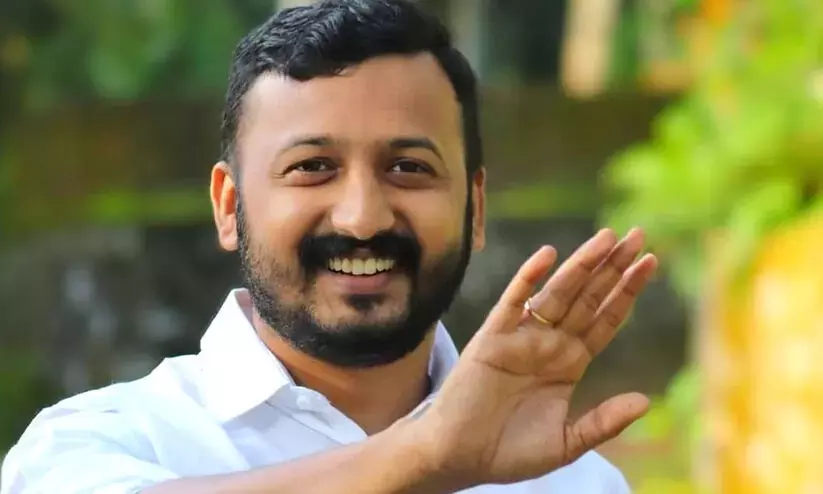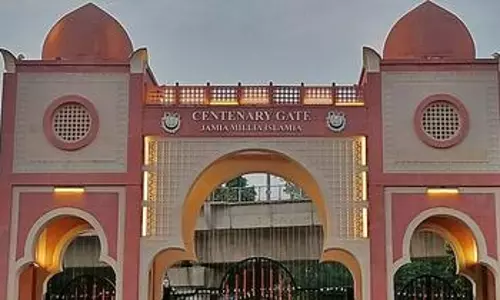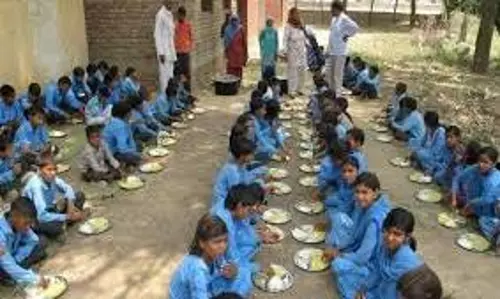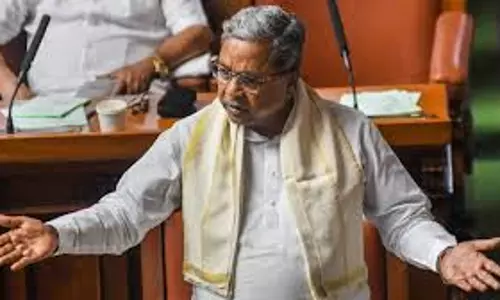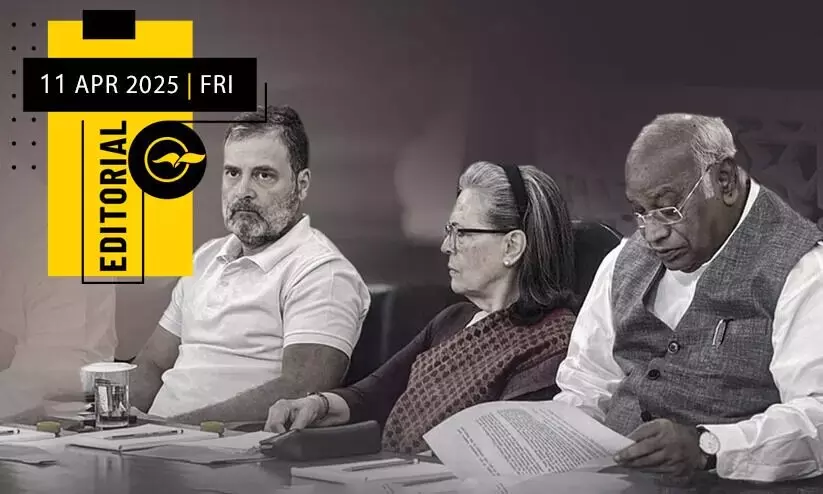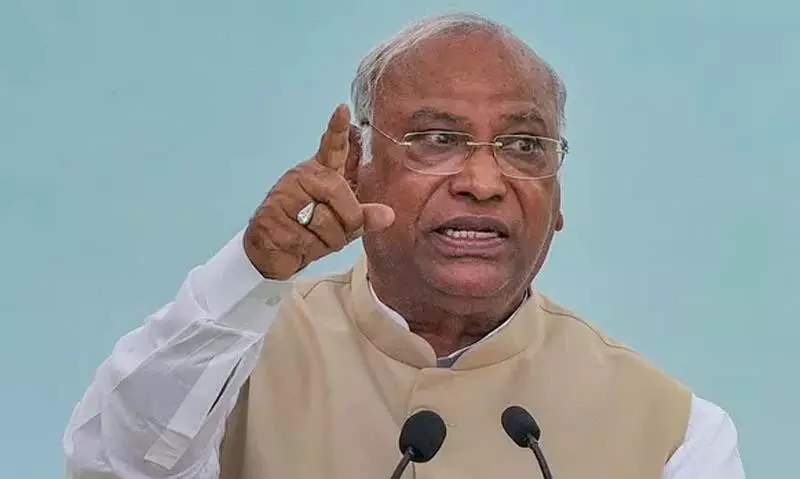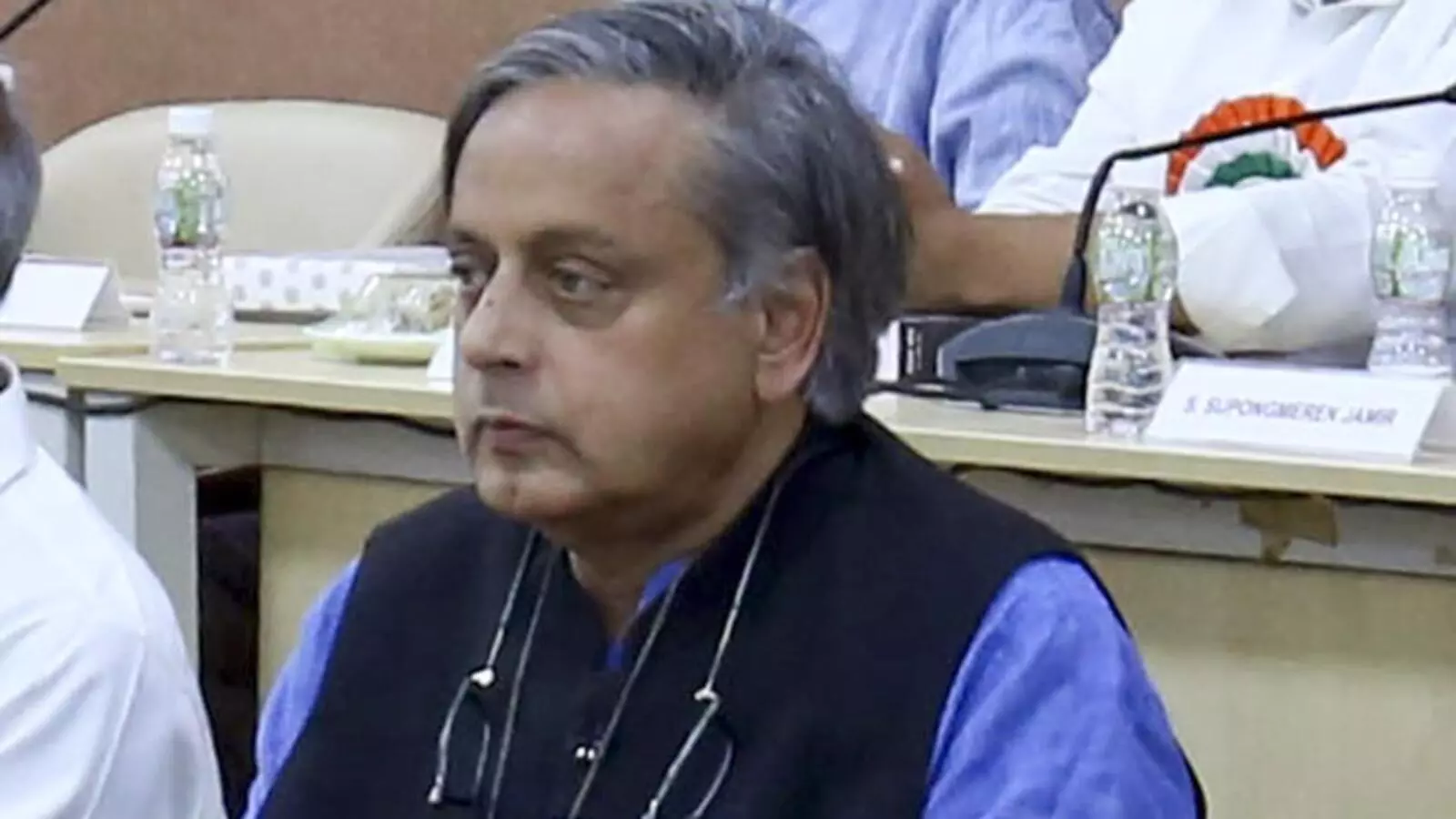
The rebirth of Congress
text_fieldsThe AICC conference, which was held in Gujarat's capital Ahmedabad on April 8 and 9 2025, during the 100th anniversary of Gandhiji becoming the president of the Indian National Congress and the 150th anniversary of Sardar Vallabhbhai Patel's birth, was aimed at reviving the grand old party in the country. The morale of the All India Congress Committee was certainly boosted due to the confidence of winning more than double the seats contested in the 18th Lok Sabha elections held last year, and the excitement as the youngest of the Nehru family rose to the position of Leader of the Opposition. The speeches delivered by the leaders and the resolutions passed at the two-day conference reflected their determination to regain its lost glory and save the nation from the communal polarization that is engulfing it and to rebuild the party itself on the foundation of secular democracy. Many Congress members would agree that the continuous hold on power for four and a half decades had created fatigue and internal discontent among Congress leaders and workers. This, along with an intense desire for positions and a lack of willingness to make course-corrections and move forward, led to the collapse of the party to the point of near wipe-out in some states and a loss of influence in others.
Although the Congress was able to regain power at the national level in 2004 with the support of other secular parties and religious minorities, the UPA could not be successful beyond the second term. It would only be proper to openly admit that this failure was a result of the party’s diminishing commitment to the fundamental principles of the Indian Constitution and its wavering loyalty to secular democracy. Further, Congress lost its support in the states due to the lack of leadership that had the ability to govern and attain the support of the people. Congress, which recently won a significant victory in the Lok Sabha elections, has subsequently been hit hard by the recent assembly elections in states like Haryana, Rajasthan, Maharashtra and Jharkhand, which have seen a sharp decline in the number of seats it won. This is primarily the result of organizational weaknesses and a significant failure in leading the INDIA alliance with a long-term vision. Having failed to secure absolute majority in the Lok Sabha elections, the Modi-Amit Shah alliance, now forced to retain power with the support of NDA allies, is desperately trying every possible tactic to promote its communal agenda with greater urgency. The realization that continued complacency could lead to a fascist regime overriding the Constitution itself might be what prompted Congress to decide on convening an AICC meeting in Narendra Modi's own Gujarat - for the first time in six decades. Along with this, the current leadership is also driven by a strong determination to find the way for the revitalization of their party in Gujarat, the birthplace of both Mahatma Gandhi and Sardar Vallabhbhai Patel.
The Congress conference concluded with a declaration to build a new Congress that combines Mahatma Gandhi’s firmness in ideology with Patel’s practical courage. Kharge, who stated that Congress is now fighting a second freedom struggle against enemies like communalism, injustice, inequality, poverty, and discrimination, also proclaimed that the party would win this battle. However, for that to happen, the party must completely abandon its long-standing soft approach towards Hindutva. If Hindutva is what people want, no one else can take the country towards it but the Sangh Parivar. Every bill being passed seems to be aimed at weakening religious minorities — their places of worship and even their homes are being bulldozed; financial aid lawfully received by minority institutions from within the country and abroad is being blocked; all signs of their identity are being wiped out so thoroughly that not even names or traces remain. A truly secular and democratic India can only be reclaimed with the full support of secular parties and religious minorities — but that is possible only if the country’s largest secular party is able to resist such tyranny both democratically and legally. It is understood that the AICC is going to start taking steps to reorganize and strengthen the district Congress committees (DCCs). It is hoped that the reform measures will begin without delay, as it has been recognized that the root cause of the setbacks it suffered is decline of the organization at the grassroots level.




